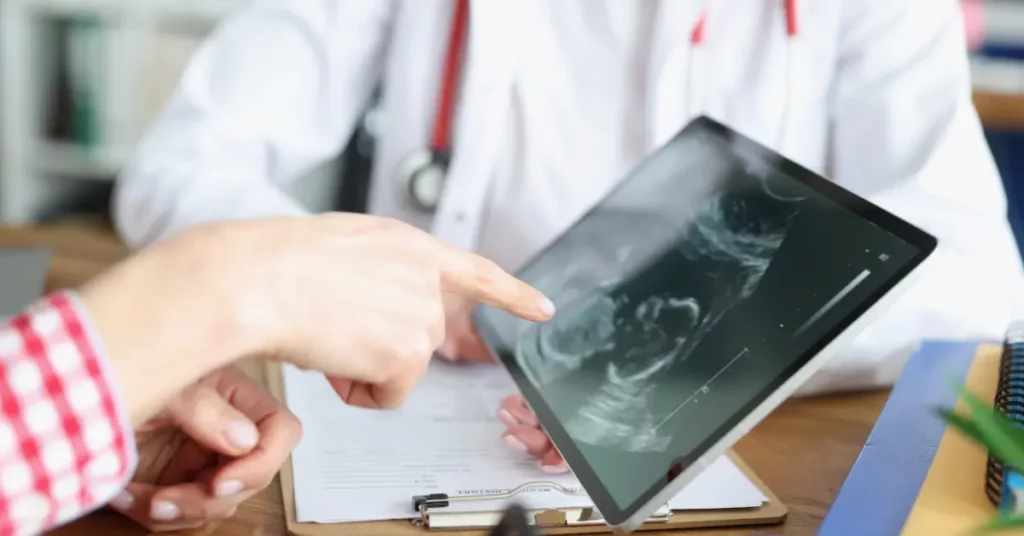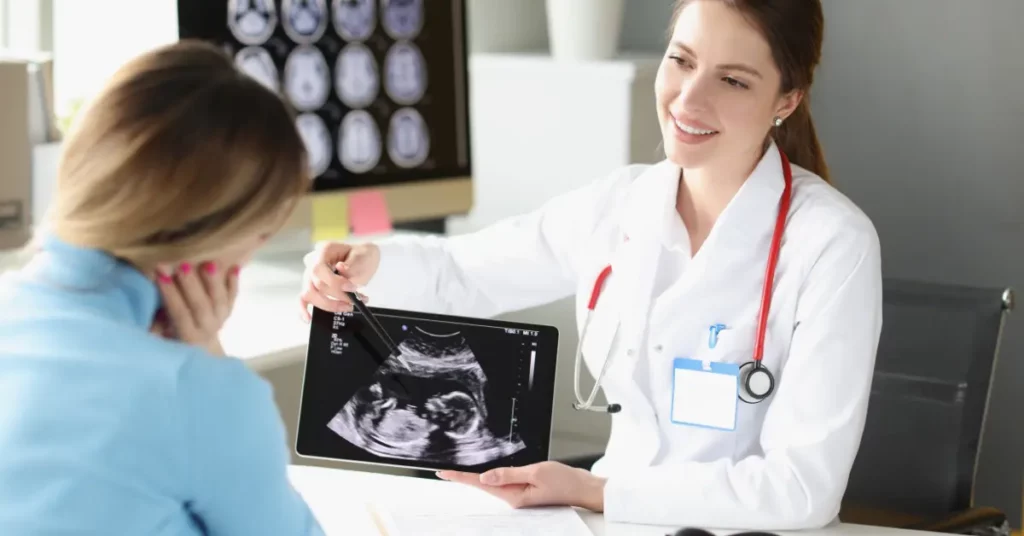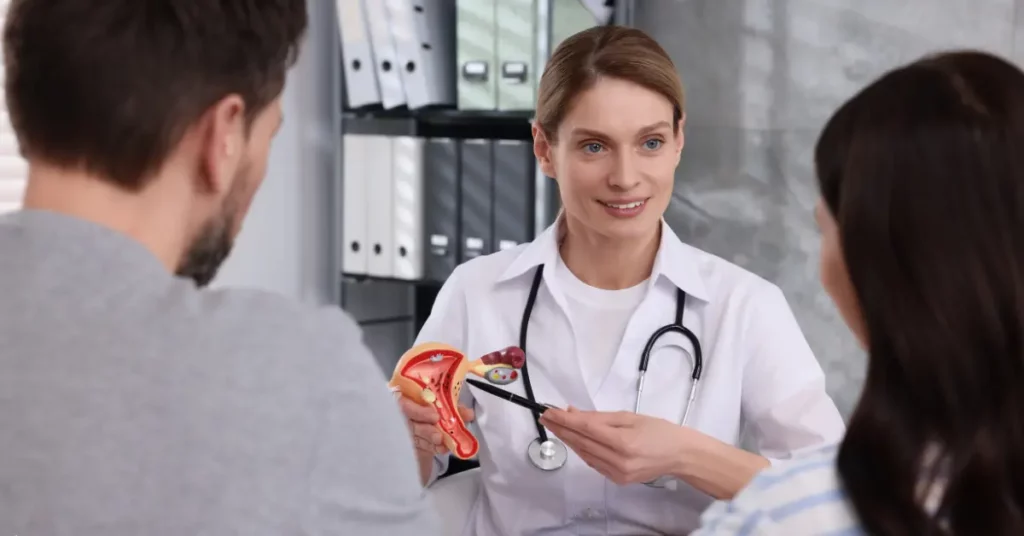Building a family may require the help of someone outside the intended parent(s). This is where third-party reproduction comes into play. A term that refers to any reproductive process involving a person other than the intended parent(s) to provide eggs, sperm, or embryos, or to carry a pregnancy. Third-party reproduction opens the door to parenthood for people facing a range of fertility challenges, genetic concerns, or family structures that make traditional conception impossible or unlikely.
What is Egg Donation?
A young, healthy woman provides some of her eggs for use in egg donation IVF treatment. These donated eggs are fertilized in the lab with sperm to create embryos, which are then transferred into the uterus of the recipient. Essentially, it is in vitro fertilization (IVF) using another woman’s eggs. The donor might be someone known to the recipient or an anonymous volunteer found through a program at a clinic or agency. The key outcome is that the recipient parent can experience pregnancy and childbirth, even if she cannot use her eggs.

Female egg donation offers hope to many individuals and couples. The process is commonly used by women with age-related infertility, those with premature ovarian failure, or genetic conditions that affect their eggs. Same-sex male couples and single men also rely on donor eggs (paired with a surrogate) to have a biological child. In short, anyone who cannot use their eggs to conceive may consider donor eggs as a path to parenthood. The procedure has been refined over decades of IVF practice, making it a well-established option at fertility clinics across the United States.
Why Consider Donor Eggs?
People turn to donor eggs for a variety of heartfelt reasons. The most common group is women in their late 30s or 40s who have a very low chance of pregnancy with their own eggs due to age. While fertility sharply declines with age, using a younger donor’s eggs essentially “resets” the biological clock. The live birth rate for a woman in her 40s using donor eggs can become similar to that of a woman in her late 20s. Other candidates for donor eggs include women with egg donation eligibility issues, like premature ovarian insufficiency, or those who have undergone cancer treatments that affected their ovaries. Additionally, couples may choose donor eggs to avoid passing on serious genetic diseases if the female partner carries a high-risk gene. And as mentioned, male same-sex couples or single men require an egg donor as part of their family-building journey. In all these cases, egg donation can be a powerful solution as it allows the intended parent to have a child with a genetic link to one parent and to experience pregnancy and birth if they have a uterus.
Egg Donor Requirements
Egg donation clinics and agencies carefully screen potential donors to ensure they are suitable. The requirements to become an egg donor typically include:
- Age: Donors are usually young adults. According to clinical guidelines, donors should be legal adults (18 or over) and ideally between about 21 and 34 years old. This age range balances maturity with optimal egg quality – women in their early 20s to early 30s tend to have healthier eggs and higher fertility.
- Health: Donors must be in good physical health. They undergo a thorough medical exam, including reviewing family medical history, to rule out hereditary diseases or conditions that could be passed on. A healthy body mass index (BMI), non-smoker status, and no drug use are standard prerequisites.
- Fertility: Doctors assess the donor’s reproductive health. This may include a pelvic exam and ultrasound of the ovaries to count follicles (antral follicle count), as well as blood tests to check ovarian reserve hormones. These tests help ensure that the donor is likely to respond well to the medications used in the egg donation process and produce a sufficient number of eggs.
- Infectious disease screening: Donors are rigorously tested for infectious diseases (such as HIV, Hepatitis B and C, syphilis, gonorrhea, chlamydia) per FDA guidelines. These tests typically occur within 30 days of the egg retrieval to ensure the donated eggs are safe.
- Psychological evaluation: Because of the emotional and ethical aspects of donation, donors often meet with a mental health professional. The donor needs to be psychologically sound, understand the process and implications, and give fully informed consent. This evaluation also confirms the donor isn’t being coerced and is emotionally prepared for donation.
- Legal considerations: Donors (especially in known donations) usually have a legal consultation to review the donation agreement. They need to understand their rights and relinquish any future parental claims to the eggs or resulting children, per standard practice.
These measures are in place to maximize the chances of a successful outcome and minimize risks during the donation.
The Egg Donation Process
Once a donor is selected and cleared to proceed, the egg donation process moves into the treatment phase. This involves coordinating two people: the egg donor and the recipient. Here’s an overview of how the process typically works:
- Initial synchronization (for fresh donation): If using fresh (not frozen) eggs, the menstrual cycles of the donor and the recipient are synchronized. The recipient’s uterus is prepared with hormones so that it’s ready to receive an embryo at the same time the donor’s eggs will be retrieved. (If using frozen donor eggs, you can skip this synchronization step – more on fresh vs frozen soon.)
- Ovarian stimulation of the donor: The donor undergoes the same kind of hormone injections that IVF patients do to stimulate her ovaries to mature multiple eggs. Over about 10-12 days, she takes fertility medications (gonadotropins) and is monitored by ultrasound and blood tests. This is to produce a good number of mature eggs in one cycle.
- Egg retrieval: When the donor’s eggs are ready, a minor surgical procedure is scheduled. Under light anesthesia, a fertility doctor retrieves the eggs from the donor’s ovaries using an ultrasound-guided needle. The donor often goes home the same day. In a successful stimulation, a donor might yield around 10-20 eggs in one retrieval.
- Fertilization: The retrieved eggs are then fertilized in the IVF lab. Sperm from the intended father or a sperm donor is used to fertilize each egg (often via intracytoplasmic sperm injection, ICSI, where a single sperm is injected into each egg). The resulting embryos are cultured in the lab for several days.
- Embryo transfer: Meanwhile, the recipient’s uterus has been prepared with estrogen and progesterone hormones to be receptive. One (or sometimes two) embryo(s) are selected and transferred into the recipient’s uterus using a thin catheter – a painless procedure that doesn’t require anesthesia. Any extra high-quality embryos can be frozen for later use.
- Pregnancy and beyond: About 9-10 days after the transfer, the recipient takes a pregnancy test. If it’s positive, she’ll be monitored in early pregnancy by the fertility clinic before graduating to a regular OB-GYN. From there, the pregnancy progresses just like any other, hopefully culminating in a healthy birth. The egg donor’s part is finished at the retrieval; she does not have any parental responsibilities or rights to the child.
Throughout this egg donation program process, both donor and recipient work closely with the fertility clinic team. There are many moving parts that the clinic’s program coordinators manage. Donors may participate through an agency or directly with a clinic’s in-house donor pool. Recipients often review donor profiles to choose a donor that feels right for their family. Once a match is made and all parties have consented, the clinical steps outlined above are taken.
It’s essential to note that using donor eggs is a collaborative effort that requires the involvement of doctors, nurses, embryologists, counselors, and often legal advisors. For the recipient, there is also a required egg donation consultation – an initial meeting with a fertility specialist to discuss the process, evaluate the recipient’s health, and ensure that using donor eggs is the appropriate recommendation. During this consultation, you’ll review essential factors like the need for a gestational carrier, the legal framework in your state, and psychological counseling for all parties. Clinics like IVF Center Hawaii provide comprehensive guidance during this stage, helping intended parents navigate the decisions involved in donor egg IVF.
Fresh vs. Frozen Donor Eggs
One major decision is whether to use fresh eggs or frozen eggs from a donor. Historically, fresh donor eggs were the only option. Today, frozen egg donation is increasingly common, where eggs from a donor are retrieved, then vitrified and stored in an egg bank until a recipient is ready to use them.
Advances in freezing technology (vitrification) have made frozen eggs nearly as effective as fresh in terms of resulting pregnancy rates. National data from 2022 showed virtually identical success rates: fresh donor egg IVF had about a 38.7% live birth rate, and frozen donor egg IVF had about 38.9% – essentially no difference in outcome. This means patients can feel comfortable choosing frozen eggs if that best fits their needs. Many people opt for frozen eggs due to the shorter wait and the broad selection of donors available through egg banks. On the other hand, those who want the maximum number of eggs and embryos from one donor often still pursue a fresh donation.
Cost of Egg Donation
If you’re considering donor eggs, it’s essential to plan for the financial aspects. The cost of egg donation in an IVF cycle is significant, reflecting the complex medical process and multiple parties involved. In the United States, an IVF cycle using donor eggs typically costs more than a standard IVF cycle with your eggs. There are additional expenses such as donor recruitment/screening, donor compensation, agency or egg bank fees, and possibly legal fees on top of the usual IVF laboratory and procedure costs.
As a ballpark figure, a single IVF cycle can average around $15,000 to $20,000, and it may exceed $30,000 when a donor egg is involved. The IVF egg donation cost can vary widely depending on location and clinic, but it often breaks down into components, for example:
- Donor compensation: Typically $5,000 to $10,000 paid to the egg donor for her time, effort, and discomfort. Highly sought-after donors or repeat donors might receive higher fees.
- Agency or egg bank fees: If you find your donor through an egg donor agency or purchase frozen eggs from an egg bank, there will be service fees. An agency might charge around $5,000-$9,000 for matching you with a donor, coordinating screenings, etc., whereas egg banks charge per egg or per batch.
- Medical costs for the donor’s cycle: The recipient typically covers all medical expenses for the donor. This includes the donor’s fertility medications (which can be a few thousand dollars) and the egg retrieval procedure (which might be around $7,000-$8,000 at cost). Monitoring appointments, blood tests, and ultrasound for the donor are usually bundled into a package price by the clinic or billed separately.
- IVF laboratory and recipient’s medical costs: Fertilizing the eggs, culturing embryos, and the embryo transfer to the recipient also incur costs (often several thousand dollars). If additional techniques, such as ICSI or genetic testing of embryos, are used, these add to the fees. The recipient’s medications to prepare the uterus are another few hundred dollars or more.
- Legal and counseling fees: It’s common to have legal contracts drawn up between the donor and the recipients. Legal fees may range from $1,500 to $3,000. Psychological counseling for both the donor and recipient may also be recommended and could incur additional costs.
Because insurance coverage for IVF and especially third-party reproduction is limited in many U.S. states, most of these expenses may be out-of-pocket. Some fertility clinics offer package plans or financing options, and some organizations provide grants or loans for fertility treatment.

Donor Egg IVF Success Rates
One of the most encouraging aspects of donor egg IVF is its high success rate. When using young, healthy donor eggs, the chances of pregnancy can be substantially higher than typical IVF success rates for women in their late 30s or 40s using their eggs. The exact donor egg success rates will depend on individual circumstances (such as the quality of sperm and the uterine health of the recipient), but generally they are excellent.
Clinics often report significantly improved odds with donor eggs. For example, some programs boast pregnancy rates in the range of about 65–70% per embryo transfer when donor eggs are used. This is largely due to strict donor selection criteria – only women with proven fertility or excellent ovarian reserve are selected as donors, which means the embryos are created from high-quality eggs. In contrast, a woman in her mid-40s using her eggs might have a less than 5% chance of pregnancy with IVF. With donor eggs, her chance could jump to well over 50% in one attempt, comparable to the success rates seen in much younger women.
It’s also notable that using donor eggs largely overcomes the age factor of the egg. As mentioned earlier, a 43-year-old recipient of a 25-year-old donor’s egg has roughly the same probability of having a baby as a 25-year-old would, assuming her uterus is healthy. Success is not guaranteed – multiple cycles can still be necessary – but overall, donor egg IVF has one of the highest success rates of any fertility treatment. According to national data, the majority of patients who pursue donor eggs do eventually have a child, either from the first transfer or using remaining frozen embryos from that donor cycle. Your fertility clinic should be able to provide its specific live birth rates for donor egg cycles and discuss what odds apply to your case.
Choosing a Clinic
Choosing the right clinic or agency is an integral part of the journey. Not all fertility centers offer egg donation services, so you’ll want to find experienced clinics that have a high standard of care. Some factors to consider when selecting a clinic include: the success rates of their donor egg program, the availability of in-house donors or partnerships with egg banks, the support services provided, and how comfortable you feel with the team. It’s perfectly fine to consult with more than one clinic or talk to a few programs before making a decision.
Special Considerations and Patient Resources
Some individuals and couples face unique circumstances that shape their experience with donor eggs. Turner syndrome is a genetic condition affecting females, where one of the X chromosomes is missing or partially missing. This can lead to a range of health challenges, including infertility due to underdeveloped or non-functioning ovaries. For many women with Turner syndrome, egg donation is the only viable path to pregnancy and childbirth. However, the process often involves additional medical considerations. Women with Turner syndrome may require thorough cardiac evaluations before pregnancy, as they have an increased risk of heart complications. Specialized care teams, including cardiologists and high-risk obstetricians, are typically involved to ensure the safest possible outcome for both parent and baby. Emotional support and counseling are also crucial, as the diagnosis and the decision to use donor eggs can be emotionally complex. Connecting with others who have faced similar journeys or finding resources tailored for Turner syndrome patients can make a meaningful difference.
LGBTQ individuals and couples are another group for whom egg donation opens doors to parenthood. For same-sex male couples and single men, egg donation is the only way to have a biological child. The process involves selecting both an egg donor and a surrogate, and navigating legal, ethical, and sometimes social complexities. Many clinics and agencies are now experienced in supporting LGBTQ family building, offering guidance on donor selection, legal contracts, and the unique emotional aspects of the journey. For lesbian couples, one partner may choose to carry a pregnancy using donor eggs from the other partner (known as reciprocal IVF), or from an unrelated donor if both partners are unable to provide eggs. Transgender individuals and couples may also pursue egg donation as part of their family planning, with clinics increasingly aware of and sensitive to their needs.

No matter the circumstance, patients need to seek out clinics and support networks that understand and respect their unique backgrounds and goals. Advocacy organizations and specialized counseling can provide reassurance and practical advice. By recognizing and addressing these special considerations, the egg donation process can be made more inclusive, supportive, and prosperous for everyone hoping to build a family.
Egg donation has opened the door to parenthood for countless families. By using the eggs of a healthy donor, individuals who once had little to no chance of conceiving can now carry and give birth to a baby. The journey can be complex, but with the right medical team and support, it is navigable and often rewarding. If you’re considering this path, take time to educate yourself, and don’t hesitate to reach out to a fertility specialist for personalized advice. Whether you’re a hopeful parent or a potential donor, your contribution to the process is significant and life-changing. With modern IVF techniques and caring clinics such as IVF Center Hawaii leading the way, donor eggs are helping build families and make dreams of parenthood come true every day.
Sources:
- Tsong Law Group – “Requirements for Egg Donors based on ASRM Guidelines”tsonglaw.com
- Society for Assisted Reproductive Technology (SART) – “Who Needs An Egg Donor?” (Patient Education Video Transcript)sart.org
- Advanced Fertility Center of Chicago – “Using Fresh vs. Frozen Donor Eggs” (Blog, July 29, 2024)advancedfertility.com
- Stanford Institute for Economic Policy Research – “Striking costs of infertility point to importance of IVF access and affordability”siepr.stanford.edu
- Gaia Family – “IVF with Donor Eggs: Costs, Success & More”gaiafamily.com
- Cofertility – “What’s the Cost of Using an Egg Donor?”cofertility.com